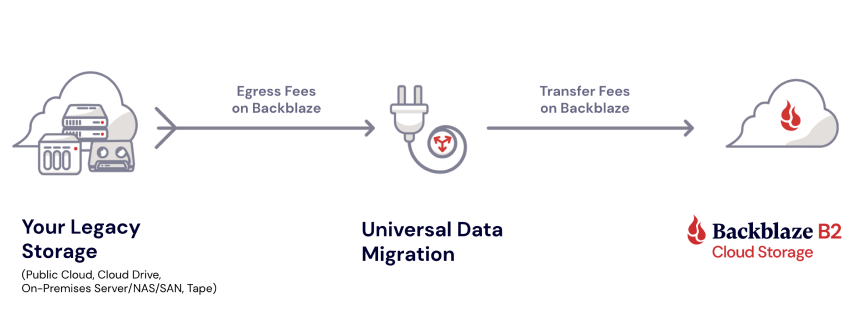Universal Cloud Storage Service: Comprehensive and Efficient Information Storage
Universal Cloud Storage Service: Comprehensive and Efficient Information Storage
Blog Article
Secure Your Information: Best Practices for Implementing Universal Cloud Storage Services
The convenience of universal cloud storage space comes with the obligation of safeguarding delicate data against prospective cyber dangers. By exploring crucial methods such as information security, gain access to control, backups, multi-factor verification, and constant surveillance, you can establish a strong defense versus unauthorized gain access to and data violations.
Information Encryption Procedures
To improve the safety of information saved in global cloud storage services, durable information file encryption actions ought to be executed. Information file encryption is an essential element in guarding sensitive information from unapproved gain access to or breaches. By converting information into a coded layout that can just be understood with the proper decryption key, security guarantees that also if information is obstructed, it remains muddled and protected.
Applying solid encryption algorithms, such as Advanced File Encryption Standard (AES) with an adequate crucial size, includes a layer of protection versus possible cyber dangers. Additionally, making use of secure vital management methods, including regular crucial rotation and protected vital storage, is necessary to preserving the stability of the encryption procedure.
Additionally, companies ought to think about end-to-end file encryption services that secure information both in transportation and at remainder within the cloud storage setting. This comprehensive technique aids mitigate dangers related to data direct exposure throughout transmission or while being stored on servers. Overall, prioritizing information file encryption procedures is extremely important in strengthening the safety and security pose of universal cloud storage solutions.
Access Control Policies

Gain access to control policies need to be based on the principle of least opportunity, providing individuals the minimal degree of gain access to needed to do their job operates efficiently. This aids decrease the threat of unapproved gain access to and possible data violations. In addition, multifactor authentication needs to be employed to add an additional layer of security, requiring individuals to offer several forms of verification prior to accessing sensitive data.

Routine Data Backups
Implementing a robust system for regular information backups is essential for making sure the resilience and recoverability of data stored in global cloud storage services. Regular back-ups serve as a vital safeguard against data loss due to accidental deletion, corruption, cyber-attacks, or system failures. By developing a regular backup schedule, organizations can decrease the threat of tragic data loss and keep organization connection despite unpredicted occasions.
To successfully implement routine data backups, organizations should follow ideal techniques such as automating backup procedures to ensure consistency and reliability - linkdaddy universal cloud storage press release. It is necessary to validate the stability of back-ups periodically to ensure that data can be effectively brought back when needed. Additionally, storing back-ups in geographically varied locations or making use of cloud replication services can further improve information resilience and reduce risks connected with local cases
Eventually, a positive approach to regular data back-ups not only safeguards against information loss however also infuses confidence in the honesty and accessibility of important information saved in universal cloud storage space services.
Multi-Factor Verification
Enhancing safety and security measures in cloud storage solutions, multi-factor authentication offers an extra layer of security versus unapproved access. This method needs customers to supply 2 or more types of confirmation before obtaining entrance, considerably reducing the danger of data breaches. By incorporating something the individual knows (like a password), with something they have (such as a mobile phone for receiving a confirmation code), or something they are (like biometric information), multi-factor verification boosts protection beyond just using passwords.
Applying multi-factor authentication in global cloud storage space solutions is essential in securing delicate information his explanation from cyber hazards. Also if a cyberpunk takes care of to obtain a customer's password, they would certainly still require the added confirmation factors to access the account effectively. This considerably reduces the likelihood of unauthorized access and strengthens overall information protection measures. As cyber threats remain to advance, integrating multi-factor authentication is a crucial method for organizations seeking to protect their information effectively in the cloud.
Constant Protection Tracking
In the world of protecting why not try here delicate info in universal cloud storage services, a crucial element that complements multi-factor verification is continual protection monitoring. Continual security tracking entails the continuous security and evaluation of a system's security measures to spot and reply to any potential risks or vulnerabilities promptly. By applying continual safety and security monitoring methods, companies can proactively identify suspicious tasks, unapproved access efforts, or uncommon patterns that might indicate a protection violation. This real-time monitoring enables quick action to be required to reduce threats and protect valuable information stored in the cloud. Automated signals and alerts can alert security groups to any type of anomalies, enabling instant examination and removal. Furthermore, continuous safety surveillance assists ensure compliance with regulative needs by giving a detailed record of safety and security occasions and actions taken. By incorporating this practice into their cloud storage methods, organizations can boost their overall safety and security posture and strengthen their defenses versus developing cyber threats.
Conclusion

Report this page